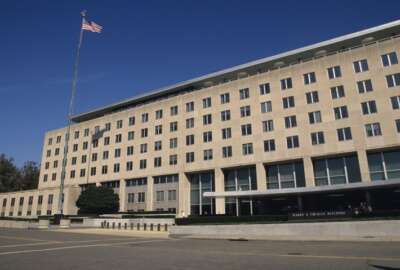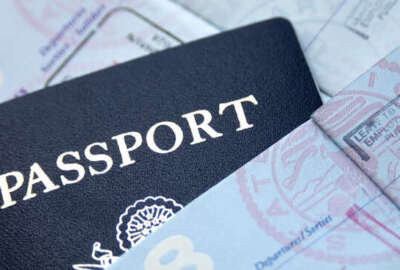
State Dept. looks to resume ‘normal operations’ at passport agencies within 6-8 weeks
Assistant Secretary of State for Consular Affairs Carl Risch said the department is looking at a “return to normal operations” at passport agencies within t...
The State Department, in another step toward resuming normal operations, has lifted its global health advisory that had effectively discouraged all international travel since the beginning of the coronavirus pandemic.
Assistant Secretary of State for Consular Affairs Carl Risch told reporters Thursday that the agency returned to issuing travel advisories by destination country after consultation with the Centers for Disease Control and Prevention.
“This important change reflects the reality that health and safety conditions are improving in some countries, while potentially deteriorating in others. By returning to our country-specific travel advisory system, we’re able to give Americans detailed and actionable information to make informed travel decisions,” Risch said.
Along with this effort, Risch said the department is looking at a “return to normal operations” at passport agencies within the next six-to-eight weeks and “a much more normal processing time” for incoming passport applications.
“We want the American people to know that we’re working aggressively to resume normal passport operations and to address COVID-19 related processing delays,” Risch said.
When the State Department reopened 11 passport agencies in June, it had a backlog of 1.8 million passport applications, but has since reduced that backlog to about a million cases. Risch said the caseload is similar to what the State Department considers a “work in progress” under ordinary circumstances.
Karen King, the deputy assistant secretary for overseas citizen services, said the department has looked at reopening more passport offices as quickly as possible, but added that state and regional pandemic restrictions remain a “limiting factor.”
Meanwhile, the National Federation of Federal Employees Local 1998, which represents passport specialists, said the union has spoken with management about their “new status as mission-critical employees” under the State Department’s “Diplomacy Strong” reopening plan.
“This is going to be a long and arduous road. An easy answer will not be had in the short term, but we are working to rectify this issue,” the union wrote in a message to its members.
Meanwhile, Thursday’s announcement hasn’t significantly broadened Americans’ prospects of traveling overseas. The State Department only now considers Macau and Taiwan as Level-One destinations where American travelers should “exercise normal precautions.”
Another eight destinations – including New Zealand, Thailand and Antarctica – have been reassigned as Level-Two regions, which means the agency recommends travelers exercise “increased caution.”
Meanwhile, the State Department still recommends that Americans “reconsider travel” to more than 140 Level-Three destinations, and does not recommend traveling to 50 Level-Four countries.
“We, in concert with CDC, identified over time that the global [Level] Four was no longer accurate. It essentially made every country in the world a Level Four because of the COVID risk and it was very clear that a number of countries were coming down in terms of the risk posed. So CDC led and we followed with making this adjustment,” King said.
The pandemic is only one consideration in the agency’s travel advisories. It also weighs risk indicators such as crime, terrorism, civil unrest and natural disasters as conditions that might make a destination unsafe for travel.
Risch said that Americans traveling abroad should still exercise caution because of the “unpredictable nature” of the pandemic. The agency, he added, will continue to update destination-specific travel advisories as conditions change.
State Department issued a global health advisory March 19 that advised U.S. citizens to avoid all international travel due to the global impact because of the pandemic.
Copyright © 2024 Federal News Network. All rights reserved. This website is not intended for users located within the European Economic Area.
Jory Heckman is a reporter at Federal News Network covering U.S. Postal Service, IRS, big data and technology issues.
Follow @jheckmanWFED





